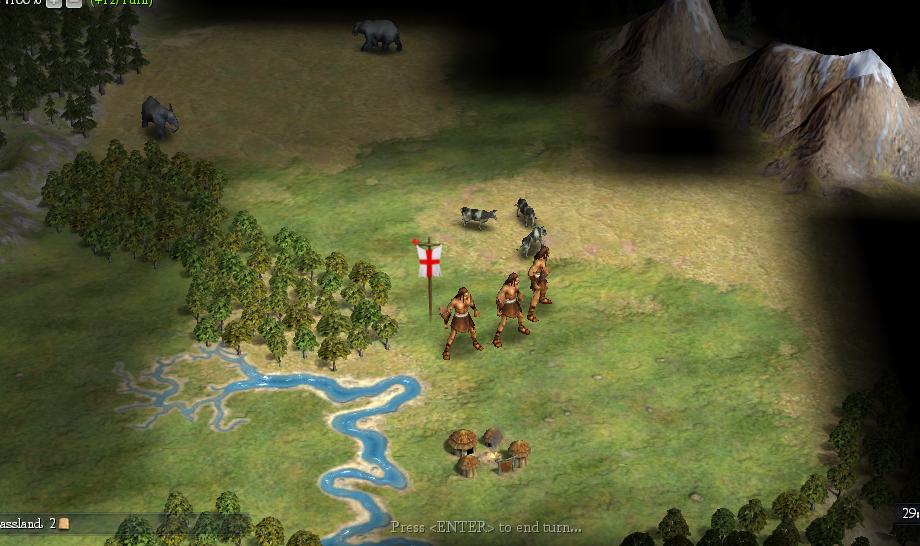Civilization offers a fascinating opportunity to look at civilized human history from a third-person perspective – almost objectively – through gameplay. The actions of the player and the technologies that are unlocked as the game progresses are only part of that perspective, though; sound represents (at least in my opinion) the most impressive way in which the game captures the essence of world history.
To start, the ambience of the landscape is important for setting the tone of the game. The villages, towns, and eventually cities, all have distinct sounds emanating from them that reflect the time period – livestock, then the clopping of hooves on stone, then cars and sirens, as the eras progress. In the countryside, sounds begin natural with the sounds of wind, waves, and birds to eventually become cattle, harbors, sawmills, and other modern sounds, faithful to the progression of humans and the effect of civilization on the natural world.
Most importantly, though, the background music sets the tone of history throughout the game. Music in this game in phenomenal, and not just because it is pleasant to listen to. The music in Civilization is by no means passive or background; it is as much a part of the game as the visuals. Since music is so emotional and nostalgic, it makes sense that it is such a powerful means by which to capture the essence of all of the stages of human development. Every era has its own amazing soundtrack, adding highly memorable character to each age’s gameplay.
The following music clips effectively capture each era of human civilization:
Representing the Ancient Era, this background music does a good job of portraying the dominance of the natural world in tribal societies. Humans must hunt for their own food, pay attention to weather, and still struggle to survive in spite of their incipient civilizations.

As villages turn into towns and cities, the Classical Era begins in earnest. Civilizations begin to flourish, while technology advances and the beginnings of science and mathematics appear. No longer spending all of their time hunting and surviving, humans are able to settle down and look toward the advancement of society.
Following the blooming of human society, though, is the Medieval Era, which is somewhat more subdued than the previous era. In an age characterized by plague and famine, creative energy is more greatly spent on religious fervor.
Once the Renaissance Era arrives, though, creative and technological momentum returns and the arts take off. Music itself picks up tempo, and civilization begins rapidly advancing once again.
As the Industrial Era rolls around, a new tone of discovery and expansion arrives. As Dvorak’s “New World Symphony,” sampled here, depicts, the beauty and the unknown nature of unexplored regions of the world and the mandate for expansion dominate the new era of human history.

The Modern Era, which we are living in now, leaves a fragmented world behind and ushers in an age of interconnectedness, global society, and noise. As the music demonstrates, the modern civilization is characterized as hectic, bustling, and fast.
Finally, the Future Era arrives. Of course, it is the only era in the game that has not been experienced already, so the soundtrack is aptly shrouded in mystery. It is unclear whether the music reflects a slowing-down or decline of civilization, or whether it is merely uncertainty, but only time will tell what this era holds for human society.

*It would be remiss of me not to raise the only issue I have with the soundtrack in Civilization IV: while the music is great for capturing the essence of each era throughout the advancement of society, it does so almost exclusively from a white, Western perspective (with the possible exception of the Ancient and Modern/Future eras). In the Medieval Era, the music is even exclusively Christian. However, the course of civilization in areas such as Asia, Africa, and the Americas were markedly different than those in Europe, so it seems a little biased to play Western music so heavily. If I’m not mistaken, though, this error is corrected in later installments of the series.